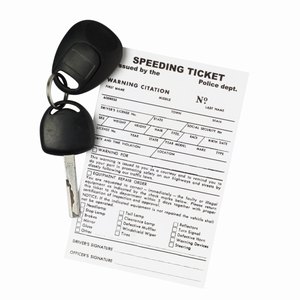
If you have recently had an accident or driving violation, you may worry that this will affect your insurance rates. How do driver’s license points affect your car insurance rates?
Non-Chargeable Violations
At the insurance company’s discretion, some driver’s record points are considered “non-chargeable.” Minor violations, such as failure to wear a seat belt or driving with expired tags, may not affect your insurance rates.
Minor Violations
Minor violations will typically have a small impact, but they can be rated exponentially. If you have one speeding ticket, your rates might only go up 5 percent, but if you have four speeding tickets, your rates might increase 50 percent or more.
Major Violations
Major violations, such as driving intoxicated and reckless driving, can substantially impact your insurance rates. A single major violation can increase rates by 30 percent or more.
Age
Some companies charge more per violation for younger drivers than older ones. This is because younger drivers are more likely to repeat the same driving behavior.
Length of Time
A violation will typically affect your insurance rates for three years, or until the violation falls off your driving record.
References
- FRB Attorneys at Law: Speeding and Traffic Tickets
- Virginia Department of Motor Vehicles. "Moving Violations and Point Assessments." Accessed Jan. 24, 2020.
- Insurance.com."Traffic Ticket? How Much Auto Insurance Goes Up for 18 Traffic Violations." Accessed Jan. 24, 2020.
- Insurance.com."Auto Insurance Discounts to Ask For: Complete Guide." Accessed Jan. 24, 2020.
- Insurance.com. "Will an Accident or Ticket Increase My Car Insurance Rate?" Accessed Jan. 24, 2020.
- Insurance.com. "10 Things You Need to Know About Driver’s License Points." Accessed Jan. 24, 2020.
- Nevada Department of Motor Vehicles. "Demerit Point System." Accessed Jan. 24, 2020.
- State of California Department of Motor Vehicles. "What Is a Point?" Accessed Jan. 24, 2020.
- Allstate. "I Got A Speeding Ticket. Will It Affect My Insurance?" Accessed Jan. 24, 2020.
- Geico. "Learn More About Accident Forgiveness." Accessed Jan. 24, 2020.
- Insurance Information Institute. "Is It Legal to Drive Without Insurance?" Accessed Jan. 24, 2020.
- Texas Department of Public Safety. "What Is a Financial Responsibility Insurance Certificate (SR-22)." Accessed Jan. 24, 2020.
Writer Bio
Owen Pearson is a freelance writer who began writing professionally in 2001, focusing on nutritional and health topics. After selling abstract art online for five years, Pearson published a nonfiction book detailing the process of building a successful online art business. Pearson obtained a bachelor's degree in art from the University of Rio Grande in 1997.

